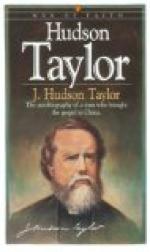Near the railway station on the ninth of September, 1903, a monument was unveiled commemorating the battle of Lake George one hundred and forty-eight years before. The monument embodies the heroic figures of Sir William Johnson and King Hendrick the Indian chief. It represents the Indian chief demonstrating to General Johnson the futility of dividing his forces. Governor Odell of New York, Governor Guild of Massachusetts, Governor Chamberlain of Connecticut, and Governor McCulloch of Vermont and others delivered appropriate addresses.
=The Trossachs of America.=—Capt. Wm. R. Lord, author of “Reminiscences of a Sailor,” in a recent article contributed to a Scottish paper, has happily called Lake George and its surroundings “The Trossachs of America.” In writing of the autumn season he says: “Its similarity to the Trossachs of Scotland impresses one most vividly as seen at this season; the mountains are clothed in a garb, the prevailing color of which is purple, reminding me of a previous visit through the Scottish Highlands when the heather was in full bloom. I at that time felt it to be impossible that any other place on the face of the globe could equal the magnificently imposing grandeur of the ‘Trossachs.’ I must, however, freely admit that in its power of changing beauty this region of America fully equals, if it does not surpass it. Deeds of ‘derring-do,’ enacted in these mountain fastnesses in days gone by, still add to make the comparison more close. Our path at times seemed to be literally strewn with roses, for the different colored leaves that carpeted our way conveyed that thought. The depth and variegated beauty of coloring that marks this season of decaying foliage, would enrapture the heart of an artist. In my vocation I have had occasion to visit the four quarters of the globe, but never have I seen tints so strikingly beautiful.”
* * *
The early fragments of our Colonial poetry and Revolutionary ballads are chanted in the midst of such profound silence and loneliness that they sound spectrally to our ears.
Bayard Taylor.
* * *




